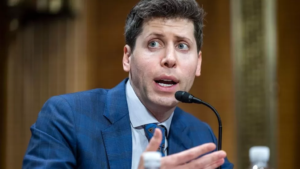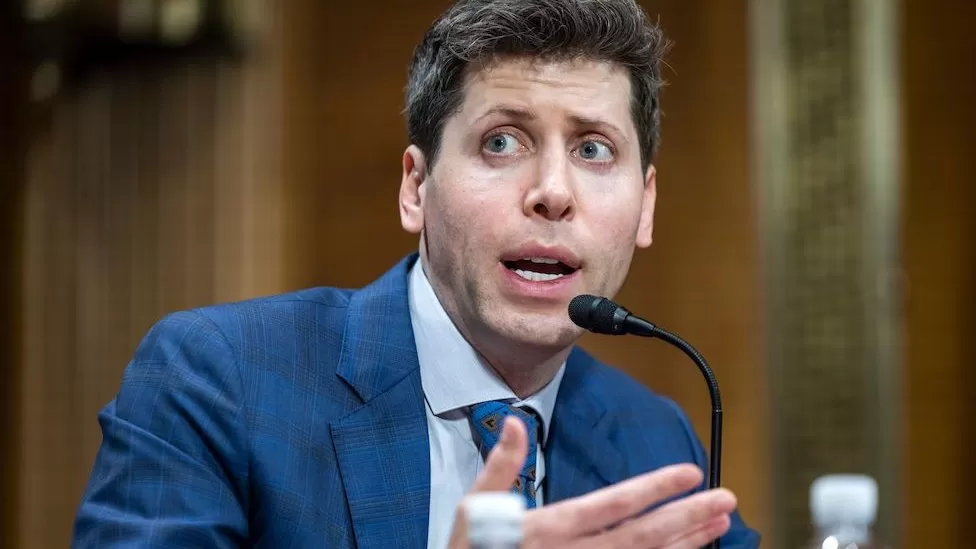In a riveting turn of events that unfolded like a scene from a Hollywood blockbuster, the global spotlight turned towards OpenAI. The world’s leading generative AI company made headlines as it experienced a whirlwind of changes, going through three CEOs in less than a week, only to circle back to the very leader it started with. The unprecedented series of transitions left onlookers in suspense, prompting questions about the dynamics at play within this influential organization and the implications for the future of artificial intelligence.
This whirlwind of events has left a trail of winners, losers, and uncertainties that continue to reverberate throughout the tech industry.
The Winners:
- Sam Altman: Despite his initial dismissal, Altman emerged victorious by reclaiming his position as CEO. His adept navigation of the tumultuous situation and unwavering determination allowed him to overcome the initial setback and regain control of the company. Also, a seeming affection by his team at OpenAI and an invitation by Satya Nadella, Microsoft CEO may have contributed to this.
- OpenAI Employees: While some employees initially expressed anxieties regarding Altman’s removal, his return likely quelled their concerns and ensured the continuation of the generously compensated work environment they had come to expect. High salaries, equity packages, and a tender offer remained intact, safeguarding the financial stability of many employees.
- OpenAI Mission: The saga appears to have refocused attention on OpenAI’s original mission: ensuring that artificial intelligence benefits all of humanity. This shift potentially reduces the pressure on OpenAI to prioritize immediate financial success and allows them to return to their core objective.
- New Board Members: The newly formed board of directors, boasting influential figures like Adam D’Angelo, Bret Taylor, and Larry Summers, brings a fresh perspective and diverse expertise to OpenAI. This influx of new voices holds the potential to enhance stability within the organization and guide it through future challenges.
The Losers:
- The events surrounding OpenAI’s board shakeup have left several key figures in uncertain positions. Among them are Helen Toner, Tasha McCauley, and Ilya Sutskever, who were all removed from their positions, losing their influence and decision-making power within the organization.
- Ilya Sutskever: While Sutskever expressed regret over his participation in the events that led to Altman’s removal, he has received an intriguing offer from Elon Musk. The opportunity to join either xAI or Tesla presents a potential silver lining, offering Sutskever the chance to continue working on impactful AI projects at the forefront of the field. This unexpected turn of events could ultimately elevate Sutskever’s position within the industry, making him a winner despite the initial setback.
- Helen Toner and Tasha McCauley: The future of Helen Toner and Tasha McCauley, however, remains less clear. While their removal from the OpenAI board undoubtedly represents a loss of influence, their expertise and experience in the field of AI research remain valuable assets. It is possible that they may find opportunities to contribute to the development of ethical and beneficial AI elsewhere, potentially even collaborating with Sutskever in his future endeavors.
- Microsoft: Initially considered a potential acquirer for OpenAI, Microsoft faced backlash from its own employees due to the proposed acquisition. The potential cost of matching OpenAI’s generous compensation packages for hundreds of employees further fueled discontent among existing Microsoft staff.
- Transparency and Trust: The internal struggles and conflicting reports that surfaced during the drama have undoubtedly tarnished OpenAI’s public image. This lack of transparency has raised questions about the company’s internal governance and decision-making processes.
- Focus on AI safety: With the spotlight shifting back to Altman, concerns about OpenAI’s commitment to AI safety might resurface, especially in light of Helen Toner’s critical paper regarding the organization’s approach to the issue and Musk’s highlight of Sutskever as the moral compass within OpenAI board.

The Paradox of OpenAI’s loss and further uncertainties
- While OpenAI undeniably lost valuable voices and perspectives through the removal of these board members, there is a paradoxical element to this loss. The very talent and influence that made these individuals valuable also contributed to the internal conflict and instability that ultimately led to their departure. This paradox highlights the complex challenges faced by organizations working at the cutting edge of technology, where rapid advancements often lead to internal tensions and difficult decisions.
- Long-term impact: While Altman’s return appears to have stabilized the company in the short term, the long-term impact of the drama on OpenAI’s culture and mission remains uncertain. The internal divisions and external pressures that surfaced may continue to have a lasting effect on the organization.
- Employee morale: Despite Altman’s reinstatement, employee morale might be irrevocably impacted by the recent events. The lack of transparency and the internal power struggles may lead to feelings of distrust and insecurity, potentially affecting productivity and innovation.
- OpenAI’s future: The future direction of OpenAI is unclear. Questions remain regarding potential acquisitions, partnerships, and the development of its technology. The drama has undoubtedly altered the company’s trajectory, and it remains to be seen what course it will chart in the coming years.
OpenAI’s dramatic saga has produced a complex landscape of winners, losers, and uncertainties. While some individuals and aspects of the organization have emerged victorious, others have suffered losses. The long-term impact of the drama remains unclear, but it has undoubtedly left its mark on OpenAI and its future direction. As the dust settles and the company moves forward, it will be crucial to address the issues that surfaced and foster a more transparent and stable environment. Only then can OpenAI truly fulfill its mission and contribute positively to the development of safe and beneficial artificial intelligence.
The OpenAI saga serves as a cautionary tale, emphasizing the importance of transparency, communication, and a shared vision in organizations working on impactful and potentially disruptive technologies. As OpenAI moves forward with its revamped board, it will be crucial for them to learn from the past and foster a more inclusive and collaborative environment that allows for diverse viewpoints while maintaining a clear focus on their mission.





